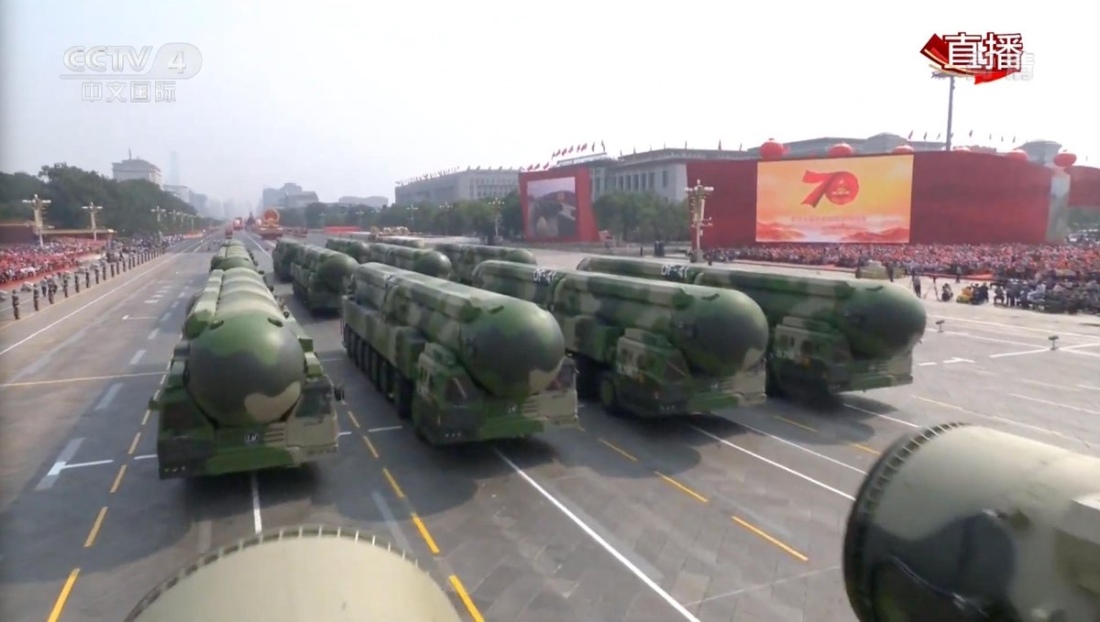US demands China participate in any future arms control treaties
Graig Graziosi
Arms control discussions between the US and Russia concluded Tuesday in Vienna, with both countries walking away from the table with concerns unaddressed.
The most contentious element of the discussions involved China, and whether or not the country should be included in any future arms treaties.
US negotiator Marshall Billingslea suggested Beijing had an “obligation” to participate in the talks.
“It is incumbent on the Chinese upon themselves to recognise that they have an obligation to negotiate with us and the Russians in good faith,” he said. “And we intend to hold them to that obligation.”
The Washington Post reported that the US wants any future deals involving nuclear arms limitation to cover all types of warheads, to include better methods for verifying compliance, and to include China.
China has treated the US’s demands as an attempt for the US to avoid entering into any new arms reduction treaties, but said it would gladly agree to participate in discussions if the US was willing to commit to nuclear parity among all nations; that is, no one gets nuclear weapons, or everyone does.
Russia was less enthusiastic about forcing China to join in on future treaties, and demanded that if China were expected to join, then so too should Britain and France.
The Trump administration claims China has been testing nuclear weapons and expanding its warhead arsenal in secret.
Mr Billingslea characterised China’s arsenal expansion as a “rapid buildup” and said the country sought to achieve “nuclear parity” with the US and Russia.
Daily coronavirus briefing
No hype, just the advice and analysis you need
In April, the US accused China of carrying out underground nuclear weapons tests.
The US and China both entered into the Comprehensive Test Ban Treaty in 1996, but neither country actually ratified the agreement. China claims it’s adhering to the measures, and the US has had a moratorium on nuclear testing since entering the treaty.
Hawkish US lawmakers, like Senator Tom Cotton – who argued that US troops be deployed against protesters – have used the accusations of Chinese secret nuclear testing to lay the groundwork for the nation rejecting future arms reduction treaties.
“Beijing is modernising its nuclear arsenal while the United States handcuffs itself with one-sided arms-control,” Mr Cotton said on Twitter. “China has proven it can’t work with us honestly.”
The Guardian reported that Jeffrey Lewis, a nuclear weapons expert at the Middlebury Institute of International Studies, doubted the veracity of the US’s accusations.
“It is worth noting how thin the evidence is for these claims,” Mr Lewis wrote. “US, Russia and China all conduct subcritical tests … From satellites and seismic stations, subcritical tests are indistinguishable from low yield nuclear tests.”
In May, the Trump administration responded to China’s alleged low-yield tests by suggesting the US would renew nuclear testing in Nevada.
The idea was criticised widely by arms control and nuclear disarmament watchdogs, likening it to a “starting gun” that would trigger every nation that possesses nuclear weapons to begin testing in order to maintain readiness.
During the Vienna discussions, the US told Russia it had no plans to continue testing at this time, but Mr Billingslea was sure to add that the US could restart at any time if it so chooses.
“We made very clear, as we have from the moment we adopted a testing moratorium in 1992, that we maintain and will maintain the ability to conduct nuclear tests if we see any reason to do so, whatever that reason may be,” he said during a June press conference. “But that said, I am unaware of any particular reason to test at this stage,”
There is added pressure on the Trump administration to force China into a deal because the New START nuclear reduction treaty between Russia and the US is ending next year. If the US wants China involved, it will have to convince Beijing soon.
On the other hand, if US officials don’t want to enter into or renew arms control measures, China provides a convenient excuse for them to reject proposals without appearing overtly hawkish.
Mr Billingslea said the US is only interested in extending the New START treaty – and then, only for less than the five-year maximum – if China participated.

No comments:
Post a Comment